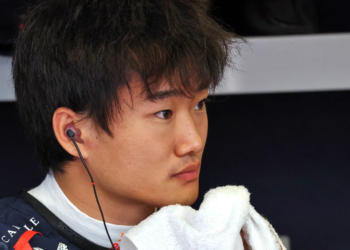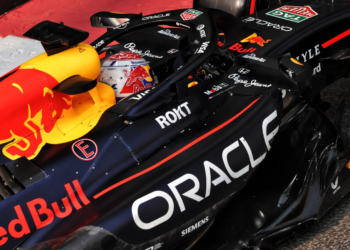Formula 1 chiefs have revealed further proposals for the championship post-2020, following a meeting between Liberty Media and team bosses in Bahrain on Friday.
Under Liberty, which fully acquired the sport in early 2017, initial plans were drafted, with the primary ambition to reduce costs, as well as simplifying the current power units.
On Friday, teams were presented with the updated plans by Formula 1 CEO Chase Carey, who outlined a series of key ‘strategic initiatives’ for the next set of regulations after 2020.
Among these are that a new method of distributing the sport’s revenue will be implemented in order to create a “more balanced” situation, with engine suppliers joining teams in receiving support, while a cost cap has once again been floated, although no concrete details were provided.
It was also emphasised that Formula 1 cars “must remain different from each other and maintain performance differentiators”, though some areas "not relevant to fans" should be standardised, and that the sport has to remain road relevant.
F1's Key Strategic Initiatives post-2020:
Power units (PU)
– The PU must be cheaper, simpler, louder, have more power and reduce the necessity of grid penalties.
– It must remain road relevant, hybrid and allow manufacturers to build unique and original PU.
– New PU rules must be attractive for new entrants and Customer teams must have access to equivalent performance.
Costs
– We believe how you spend the money must be more decisive and important than how much money you spend.
– While there will be some standardised elements, car differentiation must remain a core value
– Implement a cost cap that maintains Formula 1 position as the pinnacle of motorsport with a state-of-the-art technology.
Revenues
– The new revenue distribution criteria must be more balanced, based on meritocracy of the current performance and reward success for the teams and the Commercial Rights Holder.
– F1s unique, historical franchise and value must and will still be recognised.
– Revenue support to both cars and engine suppliers.
Sporting and technical rules & regulations
– We must make cars more raceable to increase overtaking opportunities.
– Engineering technology must remain a cornerstone but driver’s skill must be the predominant factor in the performance of the car.
– The cars must and will remain different from each other and maintain performance differentiators like aerodynamics, suspensions and PU performance. However, we believe areas not relevant to fans need to be standardised.
Governance
– A simple and streamline structure between the teams, the FIA and Formula 1.
“Formula 1 is a sport with a rich history,” said Carey.
“We want to preserve, protect and enhance that history by unleashing F1s potential, by putting our fans at the heart of a more competitive and more exciting sport.
“We are driven by one desire: to create the world’s leading sporting brand.
“Fan-centred, commercially successful, profitable for our teams, and with technological innovation at its heart.”







Discussion about this post